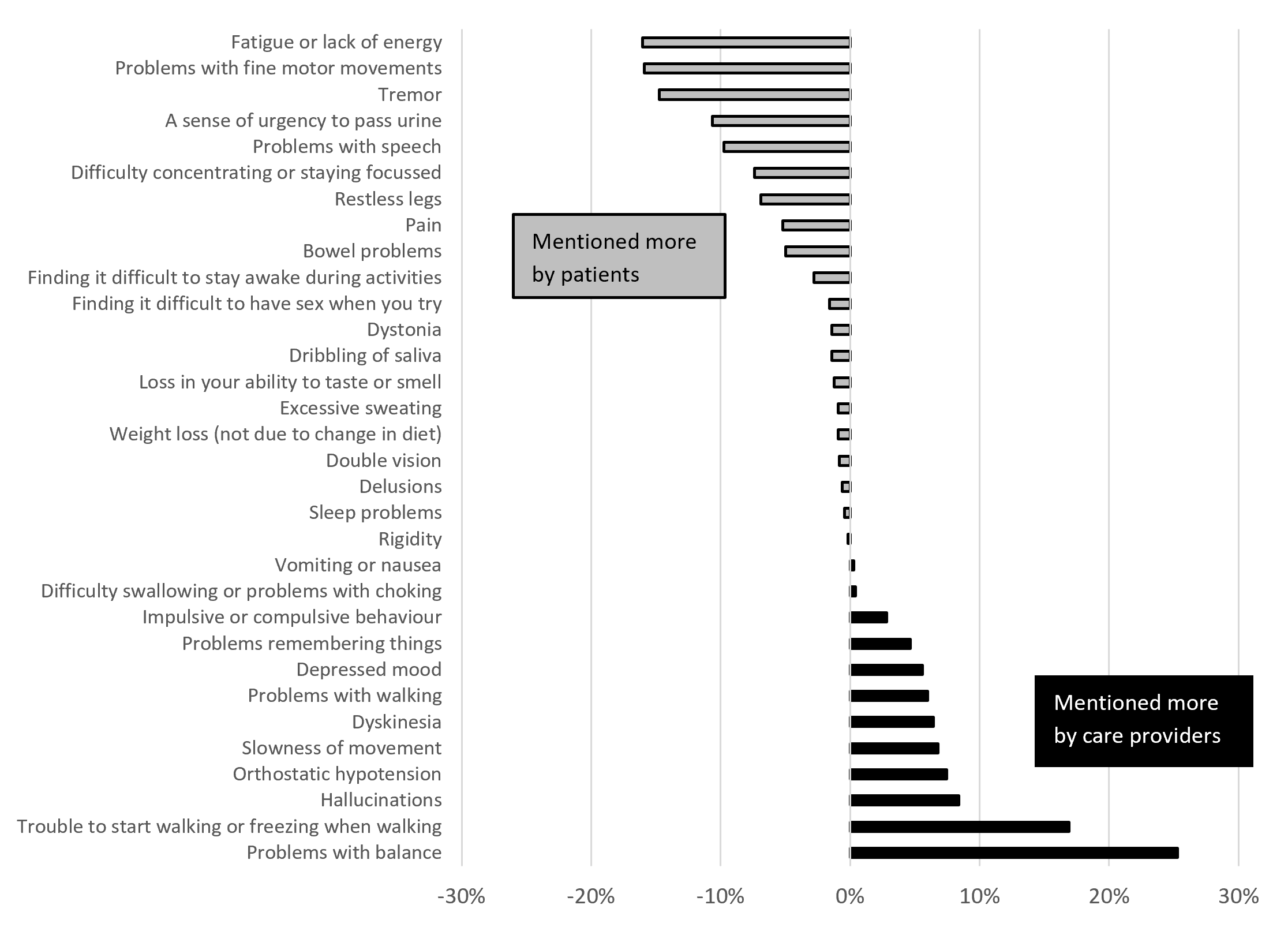Category: Technology
Objective: To identify the motivations for and barriers against monitoring Parkinson’s disease (PD) symptoms among patients and healthcare providers, and to investigate which aspects of PD are considered most important to monitor in daily life.
Background: Wearable sensors may help to monitor PD in daily life. To optimally achieve the expected benefits such as personized care and improved self-management, it is essential to understand the perspective of both patients and healthcare providers.
Method: Online questionnaires were completed by 434 PD patients and 166 healthcare providers who were specialized in PD care (86 physiotherapists, 55 nurses and 25 neurologists). To gain further understanding in the main findings, we subsequently conducted homogeneous focus groups with patients (n=14), physiotherapists (n=5), and nurses (n=6), as well as individual interviews with neurologists (n=5).
Results: One third of the patients had monitored their PD symptoms in the past year, most commonly using a paper diary. Key motivations were: (1) to discuss findings with healthcare providers, (2) to obtain insight in the effect of medication and other treatments, and (3) to follow the progression of the disease. Key barriers were: (1) not wanting to focus too much on having PD, (2) symptoms being relatively stable, and (3) lacking an easy-to-use tool. Prioritized symptoms of interest differed between patients and healthcare providers; patients gave a higher priority to fatigue, problems with fine motor movements and tremor, whereas professionals more frequently prioritized balance, freezing and hallucinations [figure1]. Although both patients and healthcare providers were generally positive about the potential of wearable sensors for monitoring PD symptoms, the expected benefits and limitations identified in the focus groups and interviews varied considerably between groups and within the patient group.
Conclusion: This study provides detailed information about the perspectives of patients, physiotherapists, nurses and neurologists on the merits of monitoring PD in daily life. The identified priorities differed considerably between patients and professionals, as well as between individual patients, highlighting the need for personalized disease monitoring.
To cite this abstract in AMA style:
L. Evers, B. Bloem, M. Meinders. Need for personalized monitoring in Parkinson’s disease: the perspectives of patients and specialized healthcare providers [abstract]. Mov Disord. 2022; 37 (suppl 2). https://www.mdsabstracts.org/abstract/need-for-personalized-monitoring-in-parkinsons-disease-the-perspectives-of-patients-and-specialized-healthcare-providers/. Accessed April 21, 2025.« Back to 2022 International Congress
MDS Abstracts - https://www.mdsabstracts.org/abstract/need-for-personalized-monitoring-in-parkinsons-disease-the-perspectives-of-patients-and-specialized-healthcare-providers/

